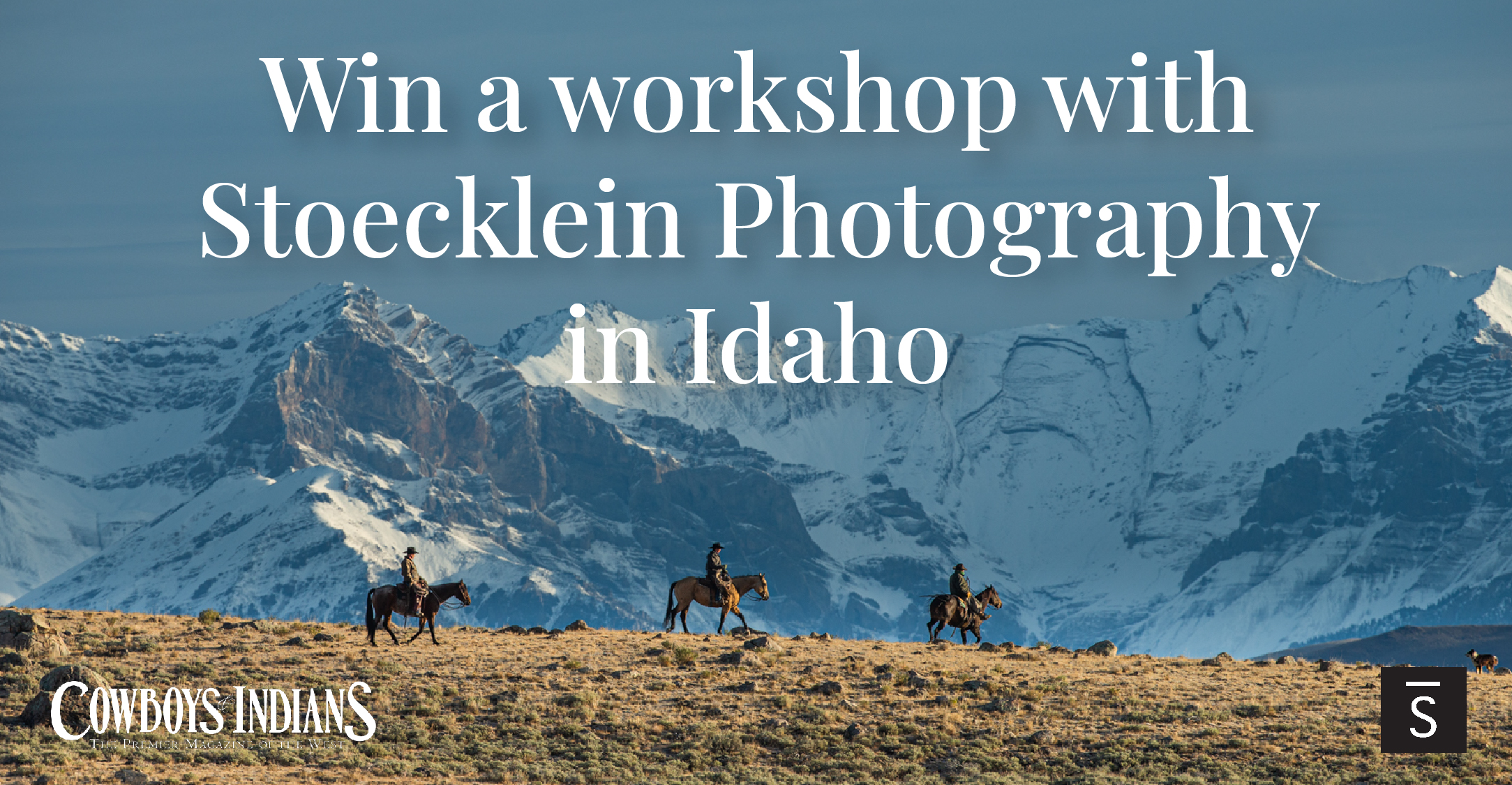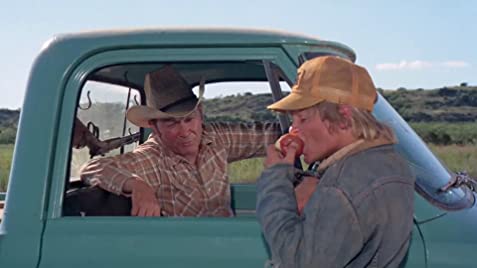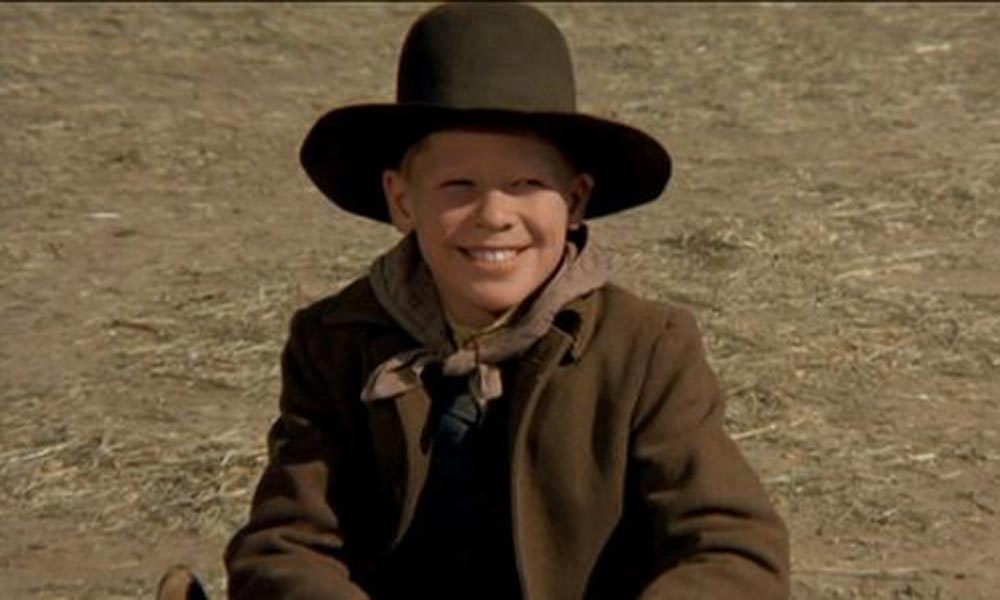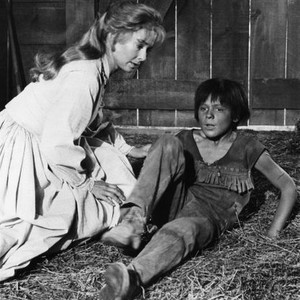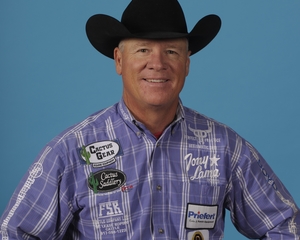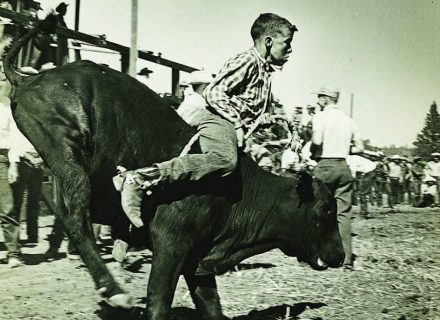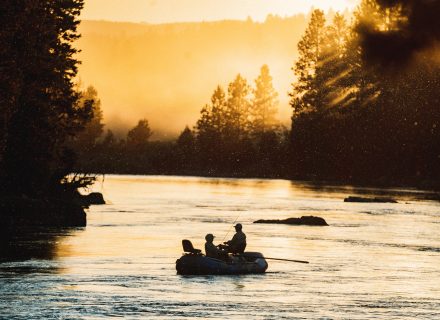Clay O'Brien Cooper talks the 50th anniversary of The Cowboys, upcoming projects, and playing opposite John Wayne (twice).
Cowboys & Indians: This year we celebrated the 50th anniversary of The Cowboys, the classic western in which you play one of the boys who become men during a cattle drive led by a rancher played by John Wayne. Clay, were you at all intimidated by The Duke?
Clay O’Brien Cooper: No, not once you started to know him and interact with him. Then he made everyone pretty much feel at ease, I would say, with his demeanor. But when I first met him, I didn’t know what to expect. So the intimidation part was just in my own head, I guess. But that quickly vanished.
C&I: Was it a sad day — or a scary day — when you filmed the scene in which Bruce Dern’s character shot Wayne’s rancher in front of all the boys?
Clay: Yeah. I mean, you did feel the significance of that scene. And it seems like we spent all day doing that whole scene, because there was a lot going on with it. So, yeah, you could feel the gravity of it, I would say.
C&I: You actually got to play two roles opposite John Wayne. In The Cowboys, he was sort of a father figure to you. But in Cahill U.S. Marshal, he played your lawman dad, while you and Gary Grimes of The Culpepper Cattle Co. played his errant sons. What’s your fondest memory of Cahill?
Clay: That was a Batjac production, which was his production company, and we went to Mexico to do it. That’s where he did most of his western films at that particular time. I think the biggest takeaway for me was, I was on another job — I was doing a Walt Disney movie called One Little Indian — and John Wayne’s production company called and asked if I would like to do [Cahill] without having to read for it or anything, because John Wayne had picked me to play that part and the deal was done. And when I got done with [One Little Indian], I should load up and get ready to go do his movie. So that was kind of cool.
C&I: You must have made quite an impression on The Duke.
Clay: [Laughs.] Well, I don’t know. But that’s what his wish was. So I was happy to oblige. And it was a good opportunity.
C&I: Of course. And it was a great way during your acting career to get a healthy nest egg for when you went back to rodeos, right?
Clay: Yeah. I was able to save up a little money and then put that as a down payment on my first place. So, yeah, that was good.
C&I: You co-starred with James Garner in One Little Indian. What’s your fondest memory of working alongside him?
Clay: James Garner was awesome. I really liked him, and I had a good time with him. He was very personable, and we spent a lot of time just visiting off the set. He was just real easy to work with, and just a real classy human being.
C&I: You also co-starred with another legendary movie cowboy, Roy Rogers, in Rogers’ final film, Mackintosh and T.J. That must have been quite an experience.
Clay: Yeah, he was just another real classy human being, and it was a great opportunity to work with him. Really, I knew the significance of his career and stuff going in, and so it was a real treat. That was the last movie that I did, and it was a good experience.
C&I: You were cast in the short-lived TV series spin-off of The Cowboys. If the show would’ve been successful and gone on for a few years, do you think you might have stayed in acting and put rodeo competition on the back burner?
Clay: Oh, who’s to say, you know? I guess you might look back and say that might have been a possibility. I mean, if they’re still wanting to hire you and you can make good money, then it’d be hard to turn it down. But the year that I turned 15, I grew a foot. I went from a little munchkin to a young man, and my voice changed. And I got to that awkward, gangly stage, so I wasn’t really a little kid actor type anymore. But I still had my desires to rope and to rodeo. So it was just a turning point there where I decided to go in the direction that I was wanting to go.
C&I: Considering you’re in the Pro Rodeo Hall of Fame, you obviously made the right decision.
Clay: Well, I think that God gives you the desires and the dreams of what you want to be and what you want to do, and that was the fire that was burning in me. Movie acting to me was just work and an opportunity to make money. It wasn’t a passion that I really saw myself pursuing as a life career. I saw myself rodeoing and pursuing my dreams doing that. So that’s the direction I pursued.




